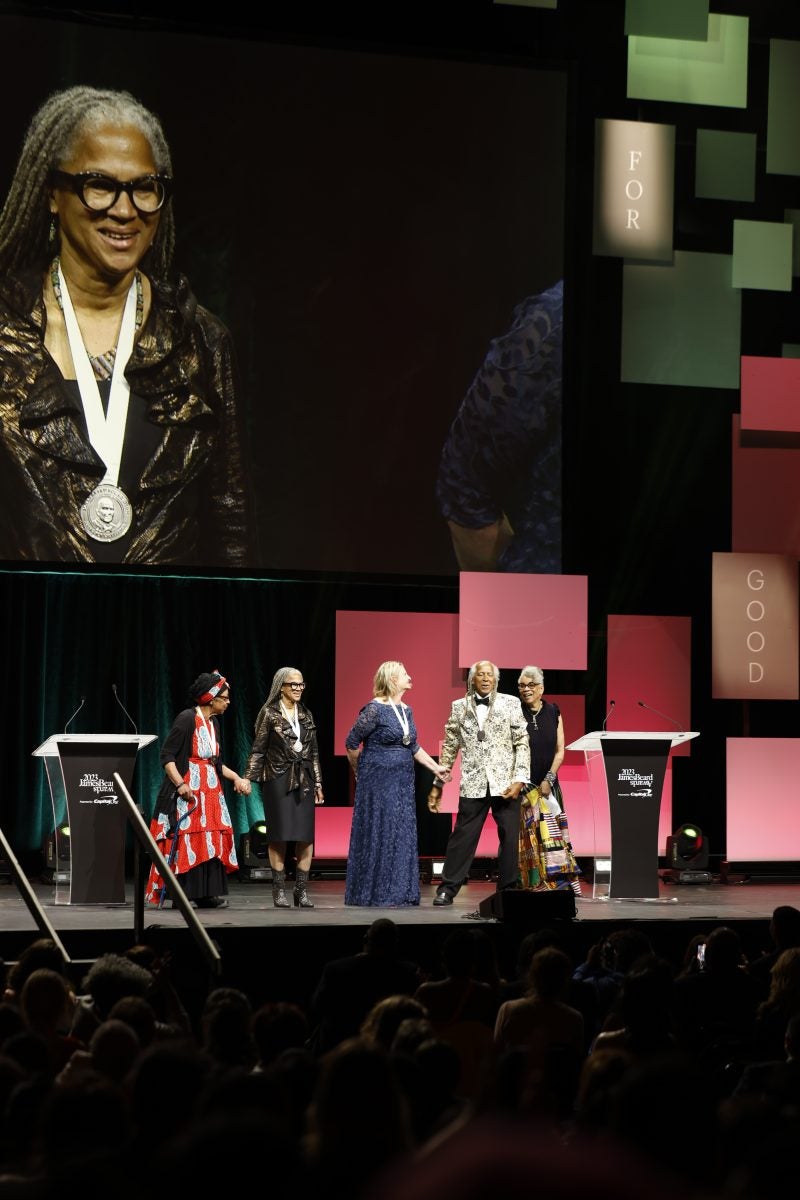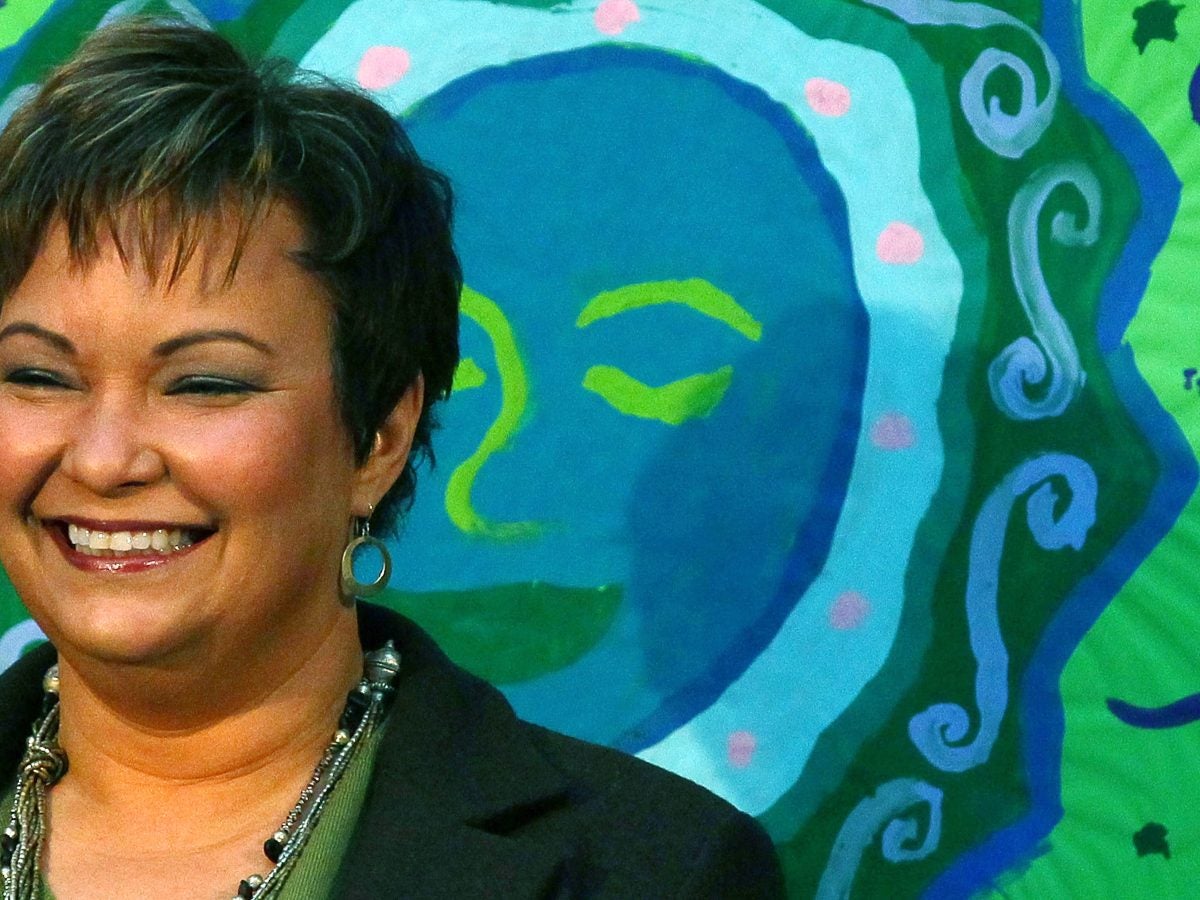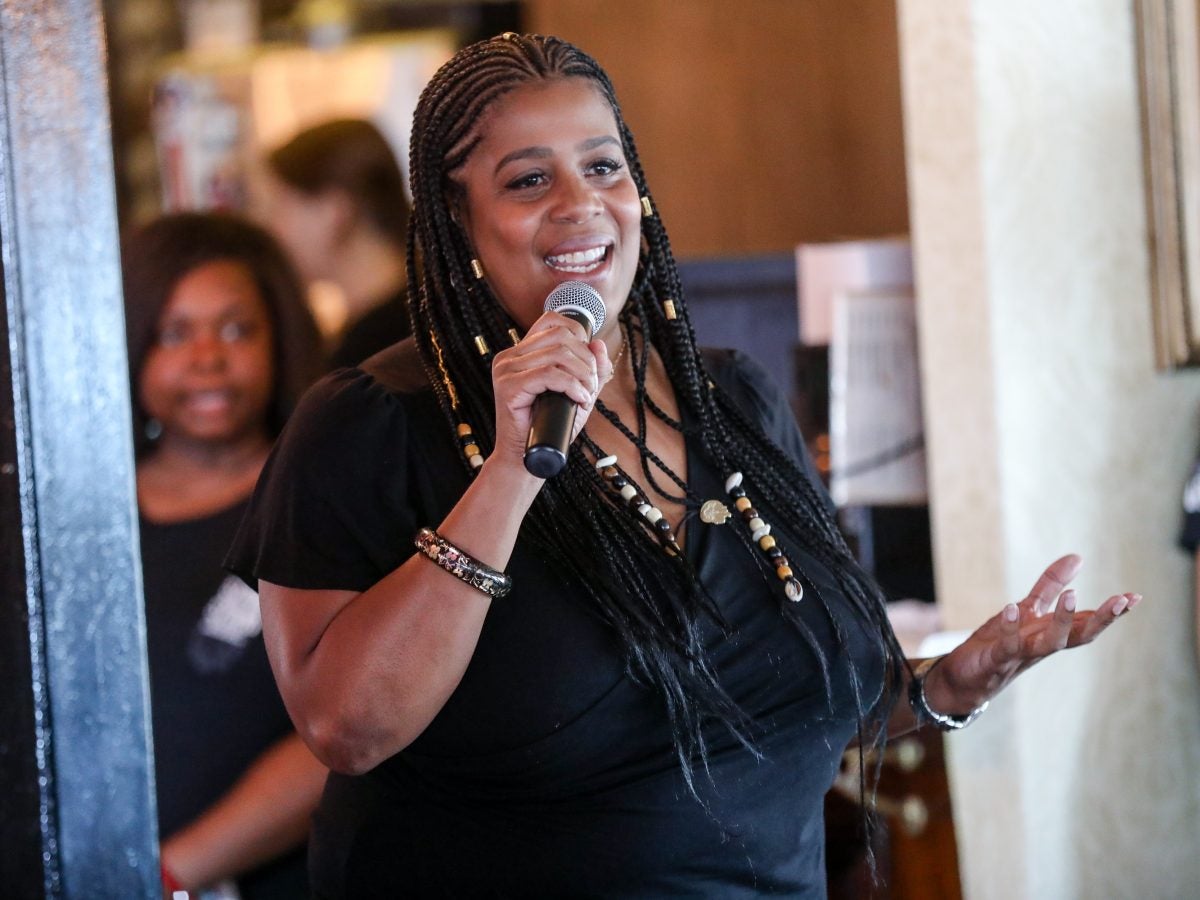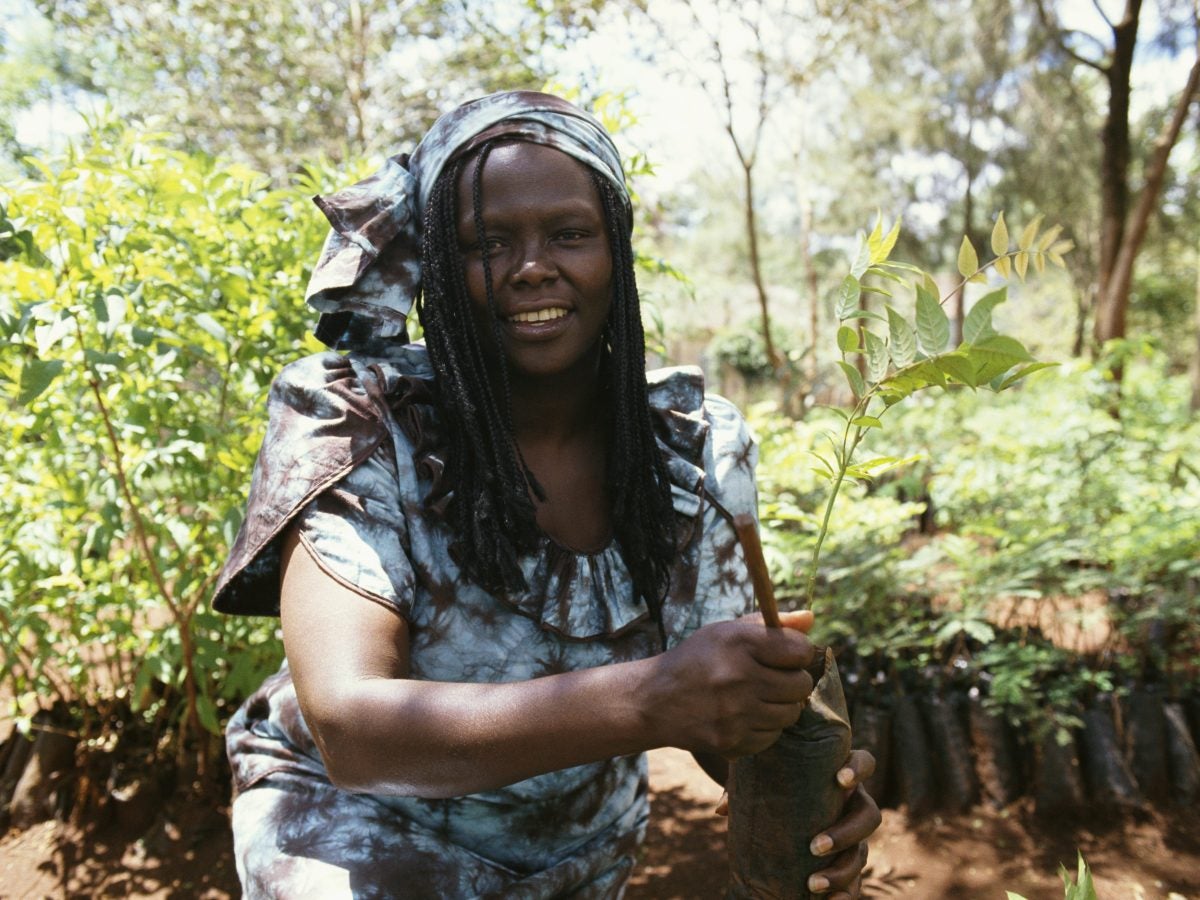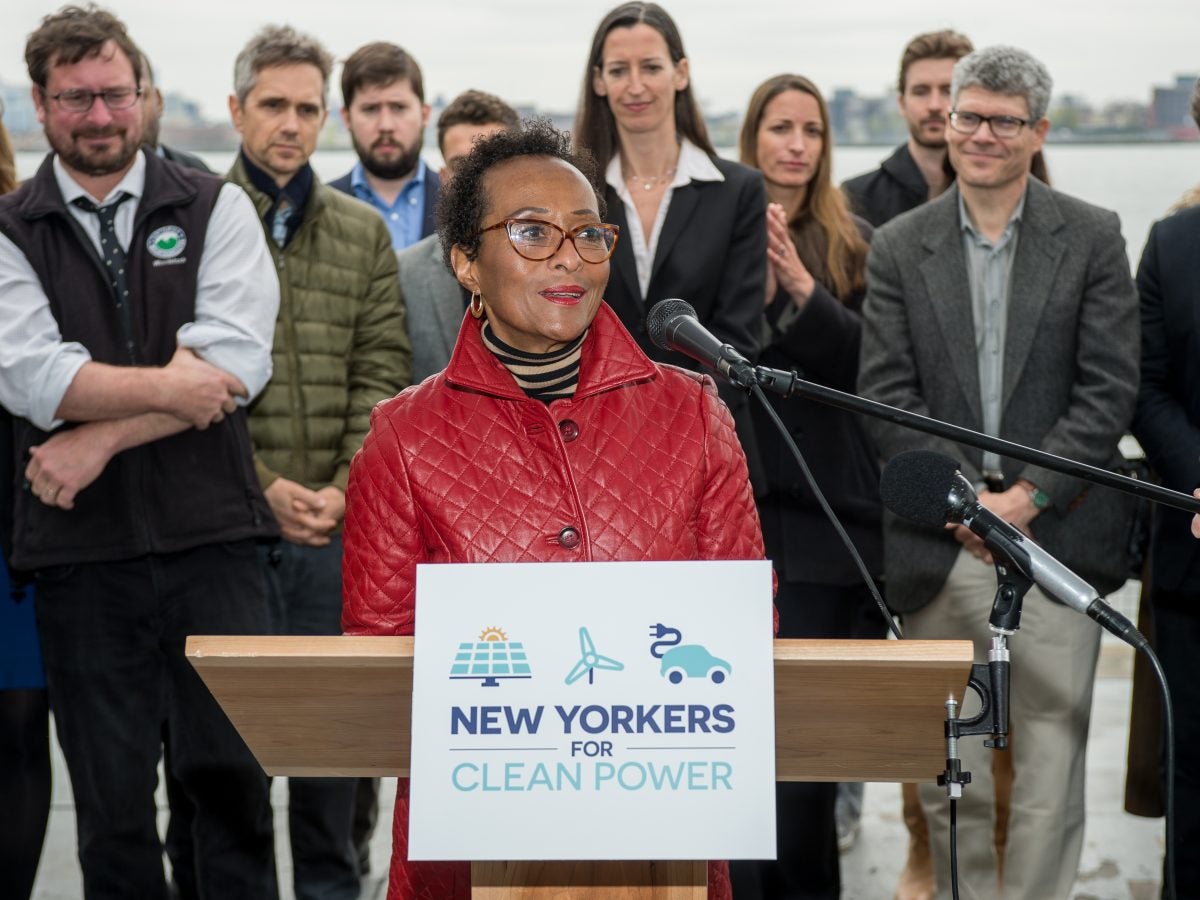Environmentalism has often been associated with the wealthy, when in fact, Black leaders – particularly Black women – have played a crucial role in shaping and fighting for the conservationist movement.
When Black environmentalist “Leah Thomas was earning her degree in environmental studies…[she] noticed that the environmentalists she was studying did not look like her, nor did they look like the Black women she knew to be integral in the fight for clean water, air and land.”
But as the NAACP notes, “[e]nvironmental and climate justice is a civil rights issue. We all depend on the physical environment and its bounty.”
Today, on Earth Day, ESSENCE is saluting five Black women who have helped lead the way towards building a more sustainable future for our planet.
“To save ourselves and the planet, there has to be a reorientation of laws to give families the security they need and to be protective of our natural resources,” Horne said, and believes that every day should be celebrated as Earth Day. Executive Director of the North Carolina Association of Black Lawyers’ Land Loss Prevention Project (LLPP), Horne “[h]er work assists financially distressed and limited resource farmers and landowners through litigation, public policy, and promoting sustainable agriculture and environment.”
“The conundrum is that the richer and more prosperous we become, the more we think that the environment is all taken care of,” stated Jackson. But that is untrue. “I have seen land completely ravaged by pollution. Environmental protection is not a spectator sport.” Jackson started with the Environmental Protection Agency (EPA) in 1987, working as a staff-level scientist, and would go on to become the first Black woman to head the governmental agency in 2009. “During her tenure, Administrator Jackson focused on seven priorities for EPA’s future: taking action on climate change; improving air quality; cleaning up our communities; protecting America’s waters; assuring the safety of chemicals; expanding the conversation on environmentalism and working for environmental justice; and building stronger state and tribal partnerships.”
“The trees don’t know what color I am. The birds don’t know what gender is. The flowers don’t know how much money I have in my bank account. I think we can rely on nature to be the equalizer for us so we can shed that weight,” Mapp said. Almost 15 years ago Mapp created a blog called Outdoor Afro—fifteen years later, Outdoor Afro is now a nonprofit “organization and social community reconnecting Black communities with nature.” As founder and CEO, Mapp “oversees a volunteer leadership team of more than 100 men and women in up to 32 states, including Washington, D.C., who continue her work and the mission of Outdoor Afro.”
“It’s the little things citizens do. That’s what will make the difference. My little thing is planting trees,” emphasized Maathai. As founder of “the Green Belt Movement, which introduced the idea of planting trees to help conserve the environment,” Maathai was immensely effective with this mission. To date, since its inception in 1977, the Green Belt Movement has planted over 51 million trees. During her lifetime, Maathai worked tirelessly toward her mission. “She was the first African women to receive the Nobel Peace Prize in 2004, the first person to receive the Nobel Peace Prize in the name of environmental efforts, and the first woman from East and Central Africa to receive a doctorate.” After being elected to the Kenyan parliament in 2002, Maathai served as the Assistant Minister for Environment, Natural Resources and Wildlife. More than decade after her death, Maathai’s legacy continues to inspire others globally in pursuit of a more sustainable world.
“The health and vitality of the earth begins at the community level — every community — and we must be vigilant to ensure that environmental justice is dispensed fairly and vigorously across the diverse landscape of America,” Shepard said. The “godmother of the environmental justice movement,” co-founded WE ACT for Environmental Justice, where she also serves as executive director, which organizes and engages residents of Northern Manhattan. Shepard “has successfully combined grassroots organizing, environmental advocacy, and environmental health community-based participatory research to become a national leader in advancing environmental policy and the perspective of environmental justice in urban communities — to ensure that the right to a clean, healthy and sustainable environment extends to all. She has been named co-chair of the White House Environmental Justice Advisory Council as well as chair of the New York City Environmental Justice Advisory Board, and was the first female chair of the National Environmental Justice Advisory Council to the U.S. Environmental Protection Agency.”


